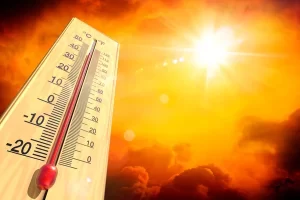Embattled Bolivian President Evo Morales fled the capital La Paz and resigned after the head of the armed forces, Gen. Williams Kaliman, suggested that he leave power in the wake of an Oct. 20 presidential vote that electoral monitors said was marred by fraud.
Sunday’s resignation by the 60-year-old leader, who as a union leader helped lead protests that toppled other presidents, came as the armed forces had declared itself neutral after three weeks of increasingly chaotic demonstrations across several cities. In a televised address, Mr. Morales was defiant, saying he was the victim of a coup and that he would continue to fight what he called an oligarchy that he said had Bolivia in its grip.
He was one of the longest serving presidents in Latin America, having first taken office in 2006 as the so-called pink tide of left-wing presidents were elected or were consolidating power across the region. Most are gone or facing calamitous economic and political pressures, most prominently Venezuela’s authoritarian leader, Nicolás Maduro.

With Mr. Morales’s exit, the Latin American left has lost a visible steward for an anti-U.S. movement that had recently been buoyed by weeks of protests against Chile’s pro-globalization president, Sebastián Piñera.
“Politically speaking, he was an enormous figure,” said Eduardo Gamarra, a Bolivian scholar at Florida International University who tracks the Latin American left. “He is the last of the original 21st century socialists.”
Among Mr. Morales’s closest allies was Mr. Maduro, whose government had showered Bolivia with aid. He wrote on his Twitter account that Venezuela “categorically condemns the coup d’état consummated against the brother president.”
The end came Sunday afternoon as allies of Mr. Morales—including three ministers and several lawmakers and governors from the ruling party—had resigned and the powerful Bolivian Workers’ Confederation had dropped once-unwavering support.
In a televised broadcast from Chimore, in the lowland Chapare region where he had gone from coca grower to head of the growers union, Mr. Morales said he was resigning to bring calm to the country of 11 million.
Popular pressure on Mr. Morales was increasing fast in a country that had been notoriously unstable, with presidents who preceded Mr. Morales frequently and quickly forced from power.
Mines Minister César Navarro, in declaring his resignation, said a mob burned down his home in the city of Potosí and beat some of his family. Prosecutors had opened an investigation into the role of the Supreme Electoral Tribunal, which had been under the ruling party’s control and which counted the votes. Bolivian television filmed police raiding the tribunal’s offices on Sunday afternoon.
“I’m resigning so that our brothers don’t continue to be persecuted. I really lament this civilian coup,” Mr. Morales, dressed in a white short-sleeved button-down shirt while sitting at a table in front of the Bolivian flag said. “I want to tell you that the fight doesn’t end here.…This isn’t a betrayal of the social movements, the fight continues. We are the people.”
Vice President Alvaro Garcia also stepped down, saying “dark forces have destroyed democracy.”
With the president and vice president gone, and the next two in line from Congress having also resigned, no official was running the country Sunday night, said Carlos Cordero, a political analyst in La Paz.
“We’re living a moment of institutional chaos,” he said. “We’re in a really difficult situation. Who is governing us in Bolivia?”
In power nearly 14 years, Mr. Morales had built a powerful state that controlled the Supreme Electoral Tribunal, the courts and other entities while expanding its influence in the media.
On Sunday, the Organization of American States, which had been invited by the Bolivian government to observe the election, had said the first round of voting, held three weeks ago, should be canceled and a new election called. The Washington-based international body said its audit had turned up “clear manipulation” of the voting system.
At one voting station, the OAS said its audit found that the ballots were completed by one person who belonged to Mr. Morales’s ruling Movement Towards Socialism party. At other stations, it said 100% of the votes went to Mr. Morales.
Mr. Morales responded hours later, saying he would permit new elections to “lower the tension.” But his opponents—most prominently Carlos Mesa, who finished second in the voting on Oct. 20—demanded that Mr. Morales step aside and not participate in an election.
Mr. Mesa, a 66-year-old former president and historian who was one of eight opponents in the first round of voting, said on Sunday morning that the OAS audit had shown there had been a “gigantic fraud here.”
By late afternoon, with Mr. Morales gone, he lauded what he called the heroism of “the peaceful resistance” on his official Twitter account.
“I will never forget this unique day,” wrote Mr. Mesa, who celebrated by marching with protesters through the streets of La Paz, carrying Bolivian flags.
An Aymara Indian, Mr. Morales had gained prominence in the new century leading protests against governments aligned with the U.S. One of those that fell was that of Mr. Mesa, who, after demonstrations demanding that he nationalize Bolivia’s natural-gas industry, resigned in 2005. In 2006, Mr. Morales took office after being elected in a landslide to become Bolivia’s first indigenous leader.
The president’s offer to conduct new elections came after two developments on Saturday that created cracks in Mr. Morales’s once cast-iron support. Police officers in several cities joined protesters in what was seen as a mutiny. The armed forces said “that we will never confront the people to whom we have a duty.”
The president was left without the institutional firepower needed to put down demonstrations that had grown violent.
While the president won the voting on Oct. 20, early returns from the Supreme Electoral Tribunal and an independent quick count indicated he hadn’t garnered enough votes to avert a runoff. Mr. Mesa’s possibilities of winning in a second round were strong, according to analysts and polls.
But with more than 83% of the votes tallied that night, the Supreme Electoral Tribunal suddenly stopped publishing results. At the time, Mr. Morales led Mr. Mesa by 7 percentage points, but needed a margin of 10 to win outright.
When the vote-counting resumed, the president’s lead gradually increased to the 10 percentage points he needed to avoid a politically perilous runoff. Three days later, on Oct. 23, Mr. Morales said he had won.
The OAS observers at the time questioned the sudden shift at the electoral tribunal and recommended a runoff, expressing “deep concern and surprise at the drastic and hard-to-explain change in the trend of the preliminary results.”
Although Mr. Morales had been a juggernaut in past elections, this year’s vote shaped up as an uphill battle for him.
















More Stories
The most valuable passport in 2023
Mexico wins Miss Universe 2021
Migrants In Mexico Face Crackdown, But Officials Say They’re Being ‘Rescued’
As Coronavirus Spreads, U.S. Students In China Scramble To Leave
Russian Prime Minister Dmitry Medvedev, entire Cabinet resign
Trump says Iran appears to be ‘standing down’ after strike